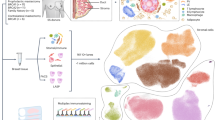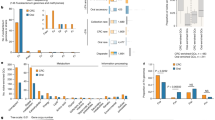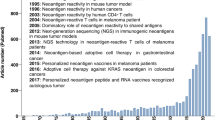Abstract
Circulating tumour cells play a central role in the metastatic process, but little is known about the relationship between this cellular subpopulation and the development of secondary disease. This study was aimed at assessing the presence of colonic cells in peripheral blood of patients with colorectal cancer in different evolutionary stages, by means of reverse transcriptase polymerase chain reaction (RT-PCR) targeted to carcinoembryonic antigen (CEA) mRNA. In vitro sensitivity was established in a recovery experiment by preparing serial colorectal cancer cell dilutions. Thereafter, 95 colorectal cancer patients and a control group including healthy subjects (n=11), patients with other gastrointestinal neoplasms (n=11) or inflammatory bowel disease (n=9) were analysed. Specific cDNA primers for CEA transcripts were used to apply RT-PCR to peripheral blood samples. Tumour cells were detected down to five cells per 10 ml blood, thus indicating a sensitivity limit of approximately one tumour cell per 10(7) white blood cells. CEA mRNA expression was detected in 39 out of 95 colorectal cancer patients (41.1%), there being a significant correlation with the presence of distant metastases at inclusion. None of the healthy volunteers and only 1 of 11 patients (9.1%) with other gastrointestinal neoplasms had detectable CEA mRNA in peripheral blood. By contrast, CEA mRNA was detected in five of the nine patients (55.6%) with inflammatory bowel disease. These results confirm that it is feasible to amplify CEA mRNA in the peripheral blood, its presence being almost certainly derived from circulating malignant cells in colorectal cancer patients. However, CEA mRNA detectable in blood of patients with inflammatory bowel disease suggests the presence of circulating non-neoplastic colonic epithelial cells.
This is a preview of subscription content, access via your institution
Access options
Subscribe to this journal
Receive 24 print issues and online access
$259.00 per year
only $10.79 per issue
Buy this article
- Purchase on Springer Link
- Instant access to full article PDF
Prices may be subject to local taxes which are calculated during checkout
Similar content being viewed by others
Author information
Authors and Affiliations
Rights and permissions
About this article
Cite this article
Castells, A., Boix, L., Bessa, X. et al. Detection of colonic cells in peripheral blood of colorectal cancer patients by means of reverse transcriptase and polymerase chain reaction. Br J Cancer 78, 1368–1372 (1998). https://doi.org/10.1038/bjc.1998.686
Issue Date:
DOI: https://doi.org/10.1038/bjc.1998.686
This article is cited by
-
Prognostic significance of CEACAM5mRNA-positive circulating tumor cells in patients with metastatic colorectal cancer
Cancer Chemotherapy and Pharmacology (2018)
-
Real-time Detection of Breast Cancer Cells Using Peptide-functionalized Microcantilever Arrays
Scientific Reports (2015)
-
Diversity of assessing circulating tumor cells (CTCs) emphasizes need for standardization: a CTC Guide to design and report trials
Cancer and Metastasis Reviews (2015)
-
Sensitivity Estimates of Blood-Based Tests for Colorectal Cancer Detection: Impact of Overrepresentation of Advanced Stage Disease
American Journal of Gastroenterology (2011)
-
Detection of carcinoembryonic antigen messenger RNA in blood using quantitative real-time reverse transcriptase-polymerase chain reaction to predict recurrence of gastric adenocarcinoma
Journal of Translational Medicine (2010)



